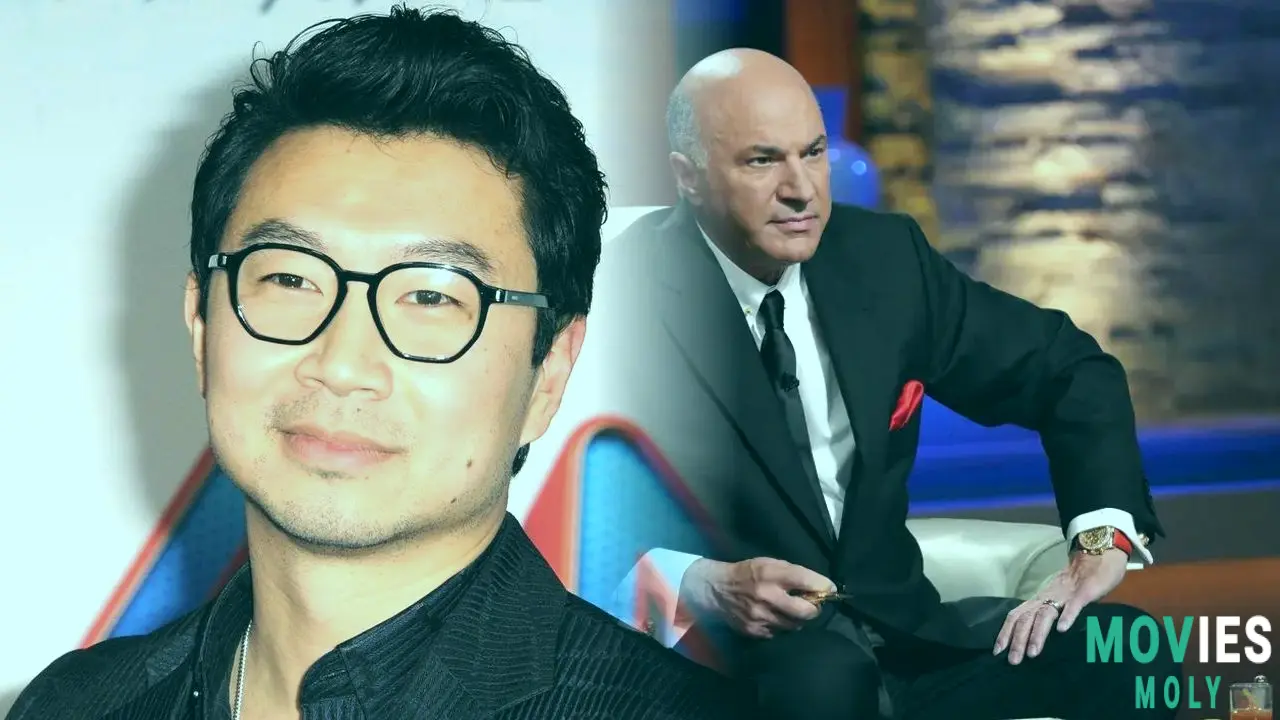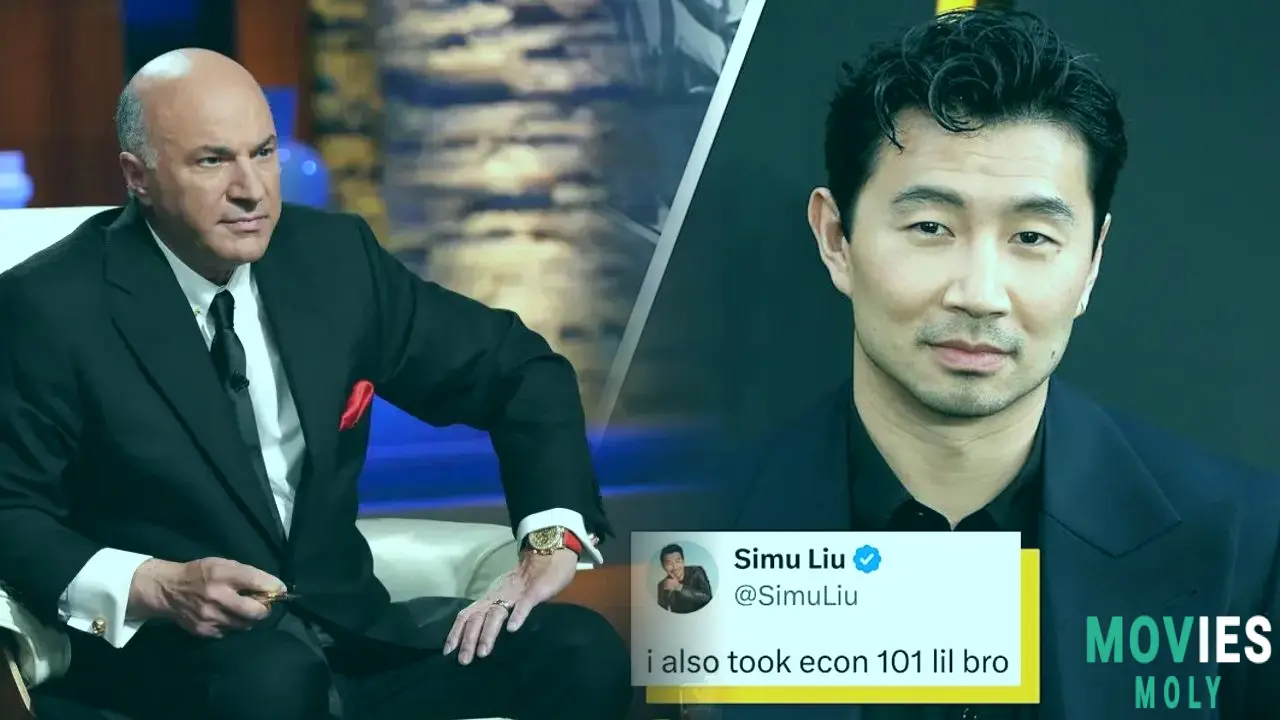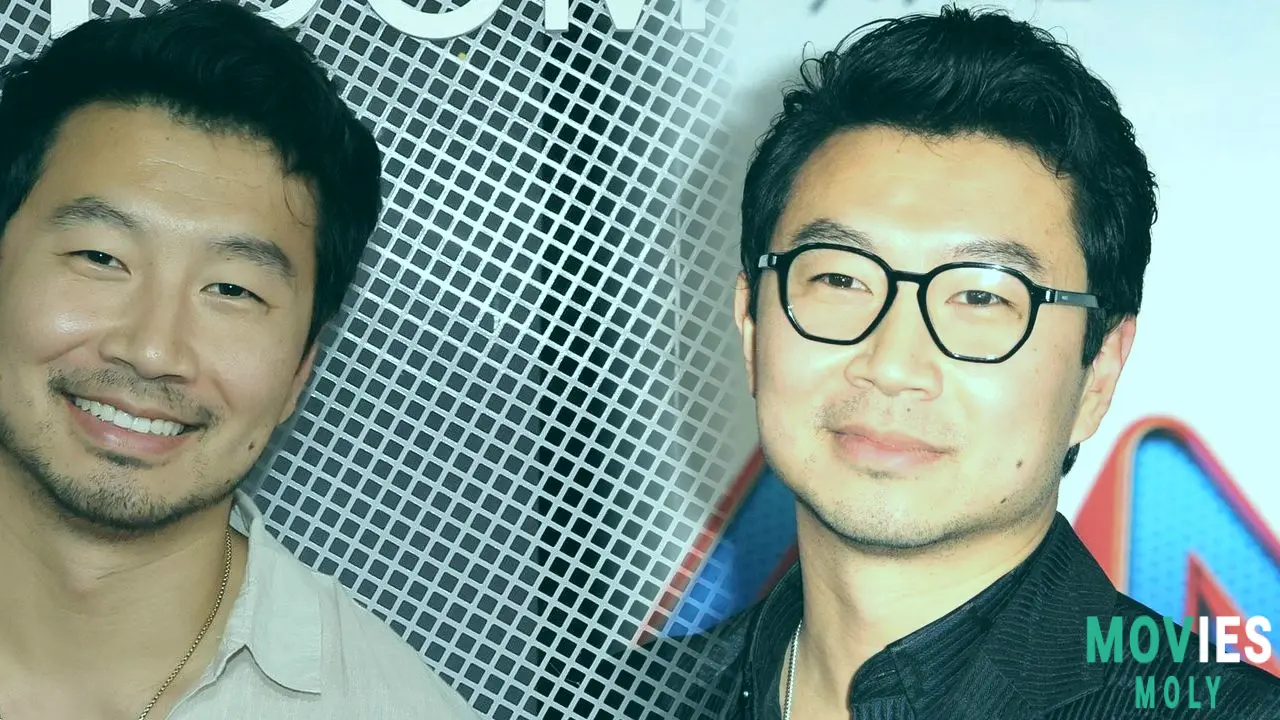The "Shang-Chi" and "Barbie" star isn't holding back after "Shark Tank's" Kevin O'leary suggested using AI to replace background actors in big-budget Movies like the upcoming A24 film, Marty Supreme.
TL;DR- "Shark Tank" investor Kevin O'Leary proposed replacing human background extras with AI to save millions on film production.
- Simu Liu, a former background actor himself, strongly condemned O'Leary's comments, calling them "tone deaf" and "out of touch."
- Liu argues that AI replacement hurts low-wage workers and deprives aspiring talent of crucial learning opportunities, stressing that art should remain a human endeavor.
Alright, movie buffs and industry insiders, get ready for some real talk. The debate about artificial intelligence in Hollywood just got a lot more personal, thanks to a heated exchange between actor Simu Liu and businessman Kevin O'Leary. And honestly, it’s got us thinking hard about what really makes a movie magic.
"Mr. Wonderful" Thinks AI is the "Wonderful" Solution for Film Budgets
It all kicked off when Kevin O'Leary, known to millions as "Mr. Wonderful" from Shark Tank, started promoting AI ahead of his acting debut in A24's much-anticipated film, Marty Supreme. During a recent chat on The Hill's "World of Travel: The Podcast" (back on October 16, 2025), O'Leary dropped a bombshell idea: replace background extras with AI.
He argued that movies like Marty Supreme, which reportedly features up to 150 extras in many scenes, could save "millions of dollars" by using digital stand-ins. "Now, those people have to stay awake for 18 hours, be completely dressed in the background," O'Leary stated, adding they're "not the main actors" and "only in the story visually." He even claimed a director could make two movies for $35 million instead of one for $90 million if they cut out human extras. Talk about a business-first approach!
O'Leary even got a bit mixed up with names, referring to the much-debated AI "actress" Tilly Norwood as "Tilly Norwell" or "Norwell Tilly" and the AI music group The Velvet Sundown as "Velvet Sunset." He’s a big fan of AI, so much so that he's even got his own "AI Kevin" in the works and is seeking full citizenship in the UAE to focus on AI ventures abroad.
Simu Liu: From Background Actor to AI Advocate
But not everyone is onboard with O'Leary's vision of an AI-powered Hollywood. Simu Liu, the star of Shang-Chi and the Legend of the Ten Rings and Barbie, quickly became a vocal opponent. Liu, who actually started his own acting career as a background performer in Guillermo del Toro's 2013 film Pacific Rim, felt O'Leary's take was completely "tone deaf and out of touch and also just kind of incorrect."
"Sure, blame the extras making 15-22 dollars an hour struggling to make a living and not above the line people making multiple millions," Simu Liu wrote on X (formerly Twitter), directly challenging O'Leary's suggestion.
"Nobody needs AI extras."
Liu pointed out that "above-the-line" talent (think main actors, directors, screenwriters, and producers) often take home multi-million dollar checks, while background actors are typically making minimum wage. He argued that singling out the lowest-paid workers for budget cuts is a "crappy fix" that only serves to benefit the "hyper-wealthy" even more.
The Invaluable Human Element: More Than Just a Line Item
For Liu, the issue goes beyond just money. His own experience as a background actor was "invaluable" for learning the technical aspects of filmmaking. "This idea of replacing actors with AI, it's so antithetical to my development as an actor," he explained. He believes that by "depriving the world of background actors, you're also depriving people the opportunity to kind of pick up these skills" – skills that can lead to bigger roles down the line.
It's about the art, too. Liu insists that film is an "artist's medium" and that "art is art because it's human." He feels that replacing human movement and presence with AI would strip away authenticity. "When we see somebody in the background not moving like a human, we know," he said. The nuances, the unplanned moments, the sheer humanity of a real crowd – that's something AI, at least "right now," struggles to replicate.
This sentiment echoes across Hollywood, with other big names also speaking out. For example, Liu’s former director, Guillermo del Toro, has famously declared he’d "rather die" than use AI in his projects, even proclaiming "fck AI!" during a recent Frankenstein screening in New York City.
Marty Supreme: A Human Story, Despite the AI Debate
The film at the center of this debate, A24's Marty Supreme, is a 1950s period piece that stars Timothée Chalamet as an ambitious ping-pong prodigy. Gwyneth Paltrow plays his love interest, with O'Leary stepping into the role of Paltrow's character's husband. Directed by Josh Safdie, the movie carries a production budget north of $60 million, making it A24's most expensive feature to date. It’s set to hit theaters on Christmas Day. Given its period setting and human-centric studio, the irony of O'Leary's AI comments isn't lost on many.
So, while the tech bros keep pushing for AI solutions, artists like Simu Liu are reminding us that filmmaking is a collaborative, human-driven process. It's about valuing every person on set, from the leading star to the background extra, for their unique contributions to the magic we see on screen. And for many of us, that's a sentiment worth cheering for.
FAQ: Your Quick Questions Answered

Q1: What is Marty Supreme and when does it release? A1: Marty Supreme is an upcoming A24 film set in the 1950s, starring Timothée Chalamet as a ping-pong prodigy. It features Gwyneth Paltrow and Kevin O'Leary. The movie is scheduled to be released in theaters on Christmas Day.
Q2: Who is the director of Marty Supreme? A2: The film is directed by Josh Safdie. (One source incorrectly mentioned Paul Thomas Anderson, but multiple reports confirm Josh Safdie.)
Q3: What exactly did Kevin O'Leary suggest about AI in films? A3: O'Leary suggested that film productions could save "millions of dollars" by replacing human background actors with AI-generated characters. He cited his experience on Marty Supreme, where scenes featured up to 150 extras, as an example where AI could have cut costs significantly.
Q4: Why does Simu Liu oppose replacing extras with AI? A4: Simu Liu, a former background actor himself, believes it's "tone deaf" to target low-wage workers for cost-cutting. He argues that it deprives aspiring actors of valuable learning opportunities and that art should remain a fundamentally human endeavor, which AI cannot authentically replicate.
Sources

- The Daily Dot
- Deadline
- Variety
- No Film School
- Showbiz411.com
- Vulture
- The Express Tribune



